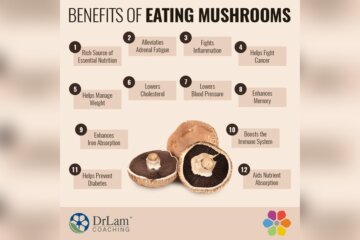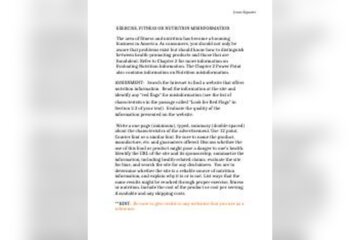You might need to take supplements after gallbladder removal. Consult your doctor for personalized advice.
Gallbladder removal, or cholecystectomy, affects how your body digests fats. Without a gallbladder, bile flows directly from the liver to the small intestine, which can impact nutrient absorption. Some people may experience deficiencies in fat-soluble vitamins like A, D, E, and K.
Digestive enzymes or bile salts can help improve digestion. Always seek medical advice to determine the right supplements for your needs. Proper supplementation can help maintain your overall health and digestive function post-surgery. Understanding your body’s new needs is crucial for long-term well-being.

Introduction To Gallbladder Removal
Gallbladder removal, also known as cholecystectomy, is a common surgery. This procedure involves removing the gallbladder to alleviate pain and prevent complications. People often wonder about the need for supplements after gallbladder removal.
Role Of The Gallbladder In Digestion
The gallbladder is a small organ located under the liver. It stores bile produced by the liver. Bile helps digest fats by breaking them into smaller particles, making it easier for the body to absorb nutrients.
During meals, the gallbladder releases bile into the small intestine. This release ensures the efficient digestion of dietary fats. Without the gallbladder, bile flows directly from the liver to the intestine.
Why Gallbladder Removal Is Necessary
Gallbladder removal is necessary for various reasons. Common reasons include gallstones and gallbladder inflammation. Gallstones can block the bile ducts, causing severe pain and complications.
Inflammation of the gallbladder, known as cholecystitis, can also necessitate removal. Other conditions like gallbladder polyps or cancer may require this surgery. Removing the gallbladder can help prevent further issues.
Let’s look at some of the key reasons in a table:
| Reason | Description |
| Gallstones | Hardened deposits that can block bile ducts. |
| Cholecystitis | Inflammation of the gallbladder causes pain. |
| Polyps | Growths that can turn cancerous. |
| Cancer | Malignant cells in the gallbladder. |

Post-surgery Changes In Digestion
Gallbladder removal, also known as cholecystectomy, often leads to noticeable changes in digestion. The gallbladder stores bile, aiding in fat digestion. Without it, your digestive system adjusts to a new routine.
Adjusting To Life Without A Gallbladder
Life without a gallbladder requires some dietary changes. Bile flows directly from the liver to the small intestine but in smaller, less concentrated amounts.
This can make it harder to digest fatty foods. After eating high-fat meals, you might experience bloating, gas, or diarrhea.
Many people find it helpful to eat smaller, more frequent meals. This helps manage the continuous but less concentrated bile flow.
Consider a low-fat diet rich in fruits, vegetables, and lean proteins. This can ease your digestive discomfort.
Long-term Digestive Effects
Some long-term digestive effects may arise after gallbladder removal. These effects vary from person to person.
Common issues include chronic diarrhea or bile acid malabsorption, which is caused by the constant flow of bile into the intestines.
A study table can help understand the common long-term effects:
| Digestive Issue | Description | Management Tips |
| Chronic Diarrhea | Frequent, loose stools | A low-fat diet, fiber supplements |
| Bloating & Gas | Excess gas and abdominal discomfort | Avoid fatty foods, eat smaller meals |
| Bile Acid Malabsorption | Excess bile acids in the colon | Bile acid binders, dietary adjustments |
Supplements can also be beneficial post-surgery. Consider digestive enzymes or bile salts to aid digestion.
Always consult with a healthcare professional before starting any supplements. They can guide you based on your specific needs.
The Importance Of Supplements
After gallbladder removal, your body may struggle to absorb nutrients. This is because the gallbladder helps in digesting fats. Without it, the process becomes less efficient. Supplements can help bridge this gap. They ensure you get the nutrients your body needs.
Compensating For Altered Nutrient Absorption
A gallbladder stores bile, which helps digest fats. Without this organ, bile directly flows into the intestines, which can lead to poor nutrient absorption. Fat-soluble vitamins like A, D, E, and K may not be absorbed well, making supplements crucial in maintaining these vitamin levels.
Essential Supplements After Cholecystectomy
Post-surgery, certain supplements prove beneficial. Here are the key ones:
- Vitamin A: Vital for vision and immune function.
- Vitamin D: Supports bone health and the immune system.
- Vitamin E: Acts as an antioxidant, protecting cells.
- Vitamin K: Important for blood clotting and bone health.
- Bile Salts Aid in digesting fats and absorbing fat-soluble vitamins.
These supplements can help compensate for nutrient loss. However, it is essential to consult a healthcare provider before starting any supplements.
Below is a table summarising the essential supplements and their benefits:
| Supplement | Benefit |
| Vitamin A | Improves vision and immunity |
| Vitamin D | Supports bones and immune system |
| Vitamin E | Protects cells as an antioxidant |
| Vitamin K | Aids in blood clotting and bone health |
| Bile Salts | Helps in fat digestion and vitamin absorption |

Types Of Supplements Recommended
After gallbladder removal, some people may need to take supplements. This is because the gallbladder helps with digestion. Without it, your body might struggle to absorb certain nutrients. Here are the types of supplements recommended.
Fat-soluble Vitamins: A Need-to-know Basis
The gallbladder stores bile that helps digest fats. With it, absorbing fat-soluble vitamins like A, D, E, and K can become easier. These vitamins are crucial for your overall health. They support your immune system, vision, and bone health.
Consider taking a multivitamin that includes these. You can also find these vitamins individually. Here’s a quick guide:
- Vitamin A: Essential for vision and immune function.
- Vitamin D: Helps absorb calcium and supports bone health.
- Vitamin E: Acts as an antioxidant, protecting cells from damage.
- Vitamin K: Important for blood clotting and bone health.
Bile Salts Supplements: Are They Necessary?
Without a gallbladder, bile flows directly from the liver to the small intestine. This might not be enough to digest fats properly. Bile salt supplements can help. They assist in breaking down fats and absorbing fat-soluble vitamins.
Bile salt supplements can improve digestion and reduce symptoms like bloating and gas. They can be taken with meals to aid in fat digestion. Here’s a simple table to understand their benefits:
| Supplement | Benefit |
| Bile Salts | Aid in fat digestion |
| Fat-Soluble Vitamins | Support overall health |
Consult your doctor before starting any supplements. They can recommend the right dosage and type for your needs.
Dietary Adjustments For Better Health
After gallbladder removal, your body needs some dietary adjustments. These changes help you digest food better and avoid discomfort. Including the right foods and avoiding the wrong ones can improve your health.
Foods To Include In Your Post-gallbladder Surgery Diet
Your diet should include foods that aid digestion and provide essential nutrients.
- Fresh fruits and vegetables: These are high in fiber and help in digestion.
- Whole grains: Brown rice, oatmeal, and whole-wheat bread are good choices.
- Lean proteins: Opt for chicken, turkey, and fish.
- Low-fat dairy products: Choose skim milk, yogurt, and low-fat cheese.
- Healthy fats: Include small amounts of olive oil and avocados.
Foods To Avoid To Prevent Discomfort
Some foods can cause discomfort and should be avoided after gallbladder removal.
- High-fat foods: Avoid fried foods, fatty cuts of meat, and full-fat dairy.
- Spicy foods: These can irritate your digestive system.
- Caffeinated beverages: Limit coffee, tea, and soda intake.
- Carbonated drinks: These can cause bloating and gas.
- Sugary foods: Cakes, cookies, and candies should be limited.
Making these dietary adjustments can help you feel better and stay healthy after gallbladder removal.
Medical Opinions On Supplementation
After gallbladder removal, many wonder if supplements are necessary. The gallbladder plays a crucial role in digestion, specifically in bile storage and fat digestion. Without it, the body may face some challenges. Medical experts have varied opinions on whether supplementation is needed. Below are insights from doctors on this topic and the risks of over-supplementation.
What Doctors Say About Supplements After Gallbladder Surgery
Doctors often recommend certain supplements post-surgery. These can aid digestion and help the body adjust. Here are some common recommendations:
- Bile salts: Help in fat digestion.
- Probiotics: Support gut health.
- Omega-3 fatty acids: Aid in reducing inflammation.
- Digestive enzymes: Assist in breaking down food.
Each patient’s needs can be different. It’s essential to consult with a healthcare provider to determine the best approach for individual needs.
Risks Associated With Over-supplementation
Taking too many supplements can pose risks. Over-supplementation can lead to adverse effects. Some common risks include:
| Supplement | Risk |
| Fat-soluble vitamins (A, D, E, K) | Toxicity and liver damage |
| Iron | Gastrointestinal issues and organ damage |
| Calcium | Kidney stones and cardiovascular issues |
It’s crucial to balance supplement intake. Always follow medical advice to avoid these risks. The goal is to support the body without causing harm.
Real-life Experiences With Supplements
Many people wonder about supplements after gallbladder removal. Real-life experiences can provide valuable insights. Let’s explore stories of success and challenges faced by patients.
Success Stories Of Supplement Use
Many have found supplements helpful after gallbladder removal. For instance, Jane, a 45-year-old teacher, started taking digestive enzymes. She noticed a significant improvement in her digestion and felt less bloated. Jane’s energy levels also increased, making her daily routine easier.
Mark, a 50-year-old engineer, had a similar experience. He began taking bile salts supplements, which helped him digest fats better. Mark reported fewer stomach issues and felt more comfortable after meals.
Another success story comes from Laura, a 60-year-old retiree. She added probiotics to her diet. Laura experienced improved gut health and fewer bowel issues. Her overall well-being improved, and she felt more active.
| Patient | Supplement | Benefits |
| Jane | Digestive Enzymes | Better digestion, less bloating, increased energy |
| Mark | Bile Salts | Improved fat digestion, fewer stomach issues |
| Laura | Probiotics | Improved gut health, fewer bowel issues |
Challenges Faced By Patients
Only some have a smooth experience with supplements. Tom, a 55-year-old accountant, faced challenges. He tried several supplements but saw little improvement. Tom experienced side effects like nausea and headaches.
Emily, a 40-year-old nurse, also struggled. She found it hard to find the right dosage. Emily had to consult her doctor multiple times to adjust her supplements. This process was frustrating and time-consuming.
Michael, a 35-year-old athlete, had a different issue. He tried supplements but didn’t notice any benefits. Michael felt he wasted money on ineffective products, so he decided to focus on a balanced diet instead.
- Tom: Side effects like nausea and headaches.
- Emily: Difficulty finding the right dosage and frequent doctor consultations.
- Michael: No noticeable benefits; felt supplements could have been a better use of money.
Navigating Your Health Post-surgery
After gallbladder removal, your body needs extra care. It is crucial to focus on your health and nutrition. Supplements help in this phase, ensuring your body gets the necessary nutrients.
Creating A Personalized Supplement Plan
Everyone’s body is different. This is why creating a personalized supplement plan is essential. Consult your doctor or a nutritionist. They can help you understand your needs. You may need certain vitamins and minerals more than others.
Here is a table of common supplements recommended post-gallbladder removal:
| Supplement | Purpose |
| Vitamin D | Helps in calcium absorption |
| Omega-3 Fatty Acids | Supports heart health |
| Probiotics | Improves digestion |
| Bile Salts | Aids in fat digestion |
Regular Check-ups And Blood Work
Regular check-ups and blood work are vital post-surgery. They help monitor your health. They also ensure that your body is absorbing nutrients correctly.
Here is a simple checklist for your check-ups:
- Schedule an appointment every 3 months.
- Get blood tests for vitamin levels.
- Discuss any new symptoms with your doctor.
- Adjust your supplement plan based on test results.
Keeping track of your health helps you monitor your nutritional needs and make necessary adjustments to your diet and supplements.
Frequently Asked Questions
Do I Need To Take Anything After Gallbladder Removal?
You might need to take prescribed medications and follow a low-fat diet after gallbladder removal. Consult your doctor.
Do I Need Bile Supplements After Gallbladder Removal?
After gallbladder removal, bile supplements may help with digestion. Consult your doctor for personalized advice.
What Pills To Take After Gallbladder Removal?
After gallbladder removal, doctors may prescribe painkillers, anti-nausea medication, and digestive enzyme supplements. Always follow your doctor’s advice.
What Is Not Allowed After Gallbladder Removal?
Avoid fatty, greasy, and spicy foods. Limit caffeine and alcohol intake. Refrain from large meals. Avoid high-fiber foods initially.
Conclusion
Choosing the right supplements after gallbladder removal is crucial for your health. Consult your doctor for personalized advice. Supplements can aid digestion and nutrient absorption. Make informed decisions and prioritize your well-being. Understanding your body’s needs helps maintain a balanced diet.
Stay proactive about your health journey.

“As the voice behind Radiant Glow Health, we are dedicated to being your ultimate wellness and vitality companion. Our mission is to inspire and guide you on your journey to a healthier and more vibrant life. Join us as we explore holistic health practices and empower you to radiate wellness from within.”



